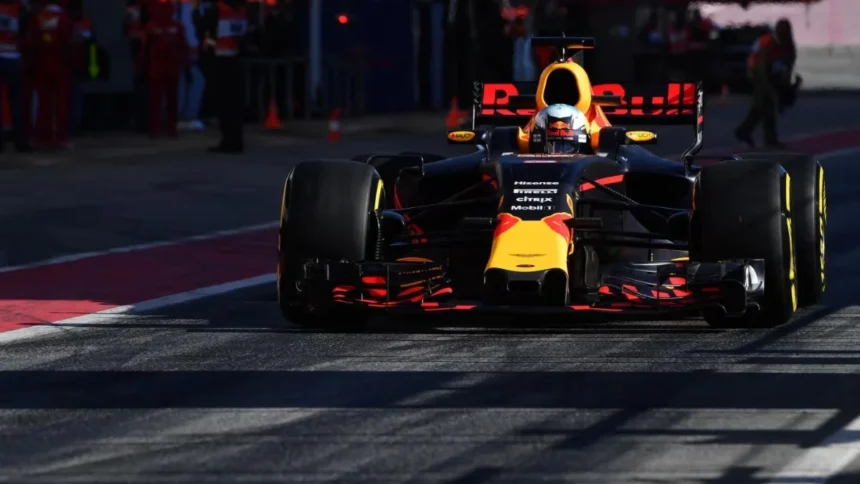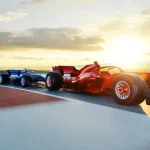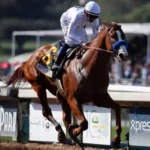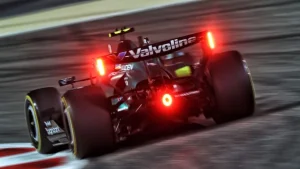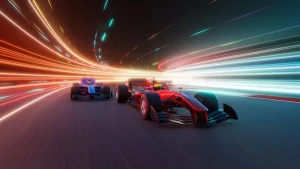Formula 1, the pinnacle of motorsport, has seen many teams rise and fall, but few stories are as dramatic or as unlikely as that of Red Bull in F1. From humble beginnings and a symbolic $1 purchase, Red Bull transformed a struggling outfit into one of the sport’s most dominant forces, rewriting the F1 playbook along the way.
Origin Of Red Bull In F1
The roots of Red Bull in F1 trace back to Stewart Grand Prix, founded by racing legend Jackie Stewart in 1997. The team showed promise but was sold to Ford in 1999, becoming Jaguar Racing. Despite Ford’s investment, Jaguar struggled for results, achieving little success over five years and languishing in the midfield.
By 2004, Ford decided to exit Formula 1, putting Jaguar Racing up for sale and seeking symbolic offers of $1, provided the buyer committed to significant investment in the team’s future.
Red Bull In F1 Entry: The $1 Purchase
Enter Dietrich Mateschitz, the visionary founder of Red Bull. Having sponsored F1 teams like Sauber since 1995, Mateschitz saw the potential of owning a team as a marketing powerhouse for his energy drink brand. On November 15, 2004, Red Bull acquired Jaguar Racing for $1, agreeing to invest $400 million over three years to revive the team.
Christian Horner, a young and ambitious team boss, was appointed to lead the new venture, and the team debuted as Red Bull in F1 at the 2005 Australian Grand Prix. The initial years were steady but unremarkable, with veteran driver David Coulthard providing experience and the team finishing sixth in the Constructors’ Championship in its first season.
The Path to Champions
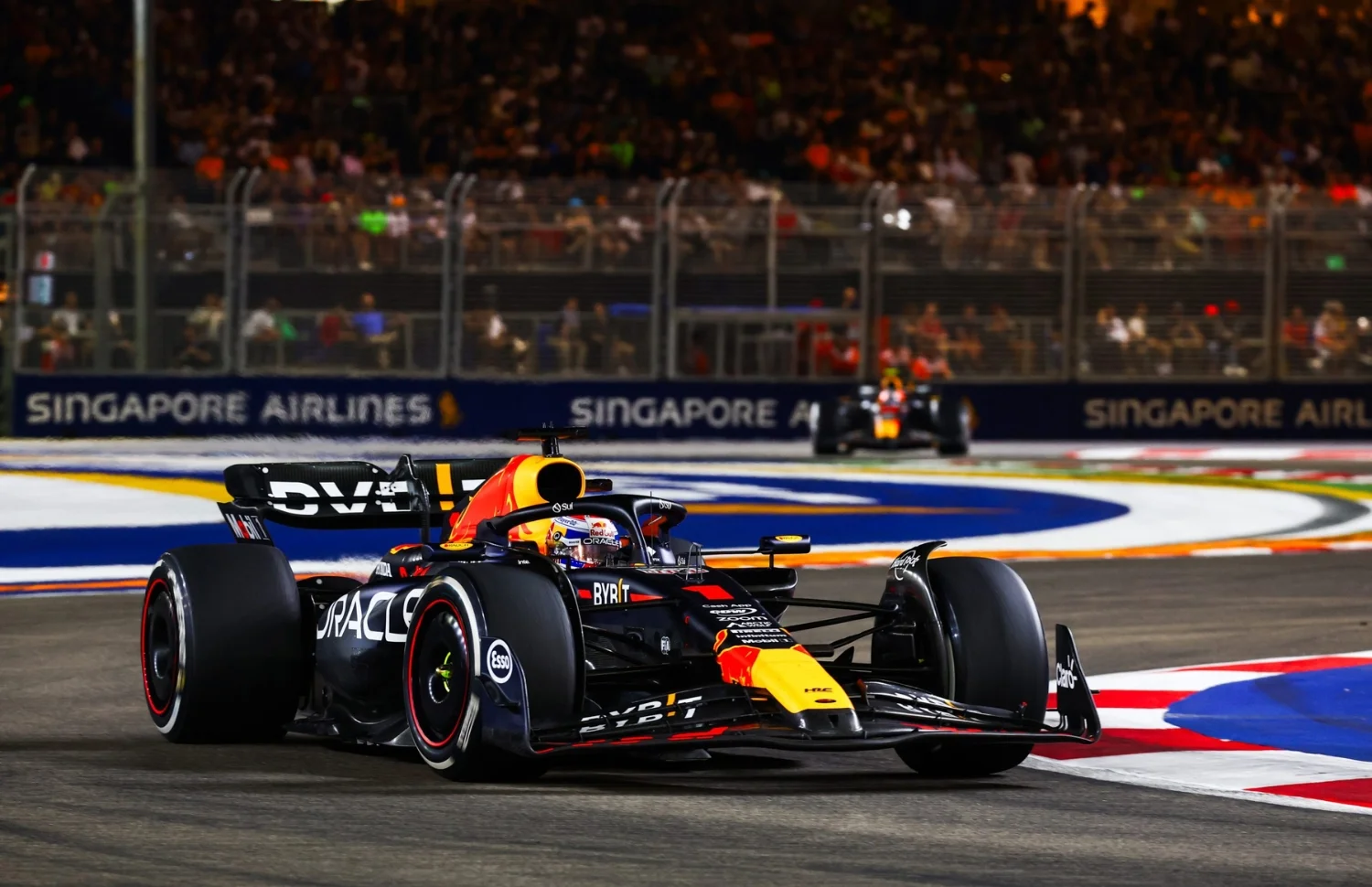
Red Bull in F1 transformed from midfielders to champions, hinged on two pivotal moves: recruiting renowned technical director Adrian Newey in 2006 and signing young driver Sebastian Vettel in 2009. Newey’s innovative designs, combined with a switch to Renault engines, gave Red Bull a technical edge. The breakthrough came in 2009, when the team won its first race at the Chinese Grand Prix and finished second in the championship.
The following years marked a new era in F1. From 2010 to 2013, Red Bull Racing, led by Vettel and teammate Mark Webber, dominated the sport. Vettel became the youngest quadruple world champion, and the team secured four consecutive Constructors’ and Drivers’ Championships, echoing the dominance of Ferrari in the Schumacher era. Red Bull’s success was built on a culture of innovation, aggressive strategy, and a willingness to challenge F1 conventions, both on and off the track.
Red Bull In F1: The Verstappen Era

The introduction of hybrid power units in 2014 disrupted Red Bull’s momentum, as Mercedes surged ahead with superior technology. Vettel departed, and the team endured several seasons of frustration. The arrival of Max Verstappen in 2016, however, signalled a new chapter. Verstappen won his first race for Red Bull in F1 at just 18 years old, becoming the youngest Grand Prix winner in history.
Red Bull’s fortunes revived with a new partnership with Honda in 2019, culminating in Verstappen’s dramatic World Championship win in 2021—the first for a Dutch driver and Red Bull’s first since 2013. The team’s aggressive development and strategic acumen allowed them to capitalise on new regulations in 2022, with the RB18 and RB19 cars setting new benchmarks for performance and reliability.
Red Bull In F1 Today: A Modern Powerhouse
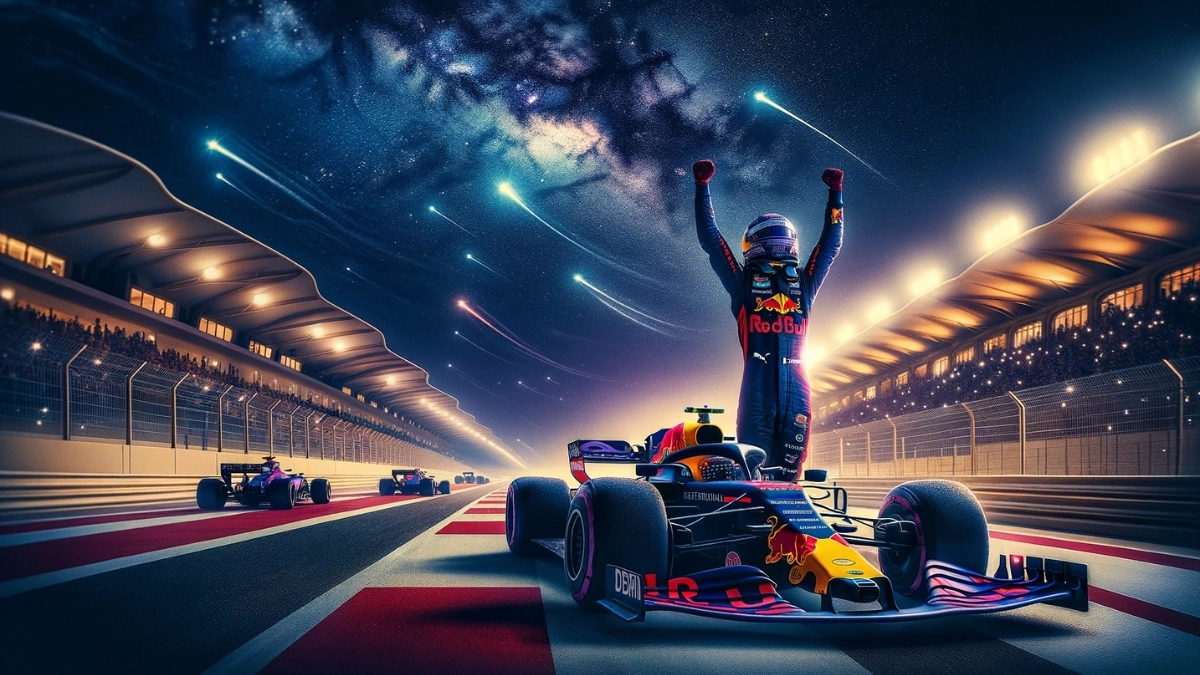
By 2024, Red Bull Racing had secured six Constructors’ Championships and established itself as one of F1’s most successful teams, with over 120 race wins and more than 100 pole positions. Max Verstappen continued to break records, winning four consecutive Drivers’ titles from 2021 to 2024, while the team’s innovative spirit remained undimmed. Despite facing renewed competition from McLaren and Ferrari, Red Bull’s legacy as a disruptor and champion endures, a testament to vision, investment, and relentless pursuit of excellence.
From a failing $1 team to F1 giants, Red Bull in F1 is a modern motorsport legend—proof that bold ideas and unwavering commitment can conquer even the toughest circuits in the world.
Also Read: Red Bull Confirms Max Verstappen Will Have To Proceed Without Any Major Upgrade


